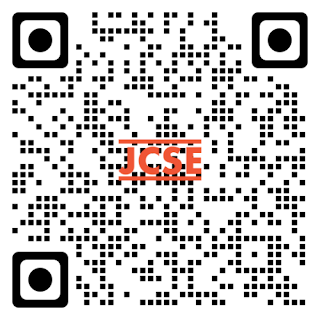Analyzing Public Trust in Presidential Election Surveys: A Study Using SVM and Logistic Regression on Social Media Comments
(1) Universitas Amikom Purwokerto
(2) Universitas Amikom Purwokerto
Abstract
Keywords
Full Text:
PDFReferences
Y. A. Aliano and M. J. Adon, “Percaturan Politik Genealogi Kekuasaan dalam Sistem Pemilu ‘ 2024 ’ di Indonesia Menurut Etika Michel Foucault,” J. Filsafat Indones., vol. 6, no. 3, pp. 474–485, 2023.
Komisi Pemilihan Umum, “Kilas Pemilu Tahun 2024,” Komisi Pemilihan Umum. p. 1, 2023. [Online]. Available: https://www.kpu.go.id/page/read/1136/kilas-pemilu-tahun-2024
Hidayah A., “Pentingnya Hasil Survei Jelang Pemilu Tahun 2024,” https://www.theindonesianinstitute.com/pentingnya-hasil-survei-jelang-pemilu-tahun-2024/. p. 1, 2021. [Online]. Available: https://www.theindonesianinstitute.com/pentingnya-hasil-survei-jelang-pemilu-tahun-2024/
M. R. Fais Sya’ bani, U. Enri, and T. N. Padilah, “Analisis Sentimen Terhadap Bakal Calon Presiden 2024 Dengan Algoritme Naïve Bayes,” JURIKOM (Jurnal Ris. Komputer), vol. 9, no. 2, p. 265-273, Apr. 2022, doi: 10.30865/jurikom.v9i2.3989.
SindoNews, “Survei Litbang Kompas: Ganjar Pranowo Capres Pilihan Gen Z,” SindoNews. p. 1, 2023. [Online]. Available: https://nasional.sindonews.com/read/1219263/12/survei-litbang-kompas-ganjar-pranowo-capres-pilihan-gen-z-1696590636
N. Pratiwi and P. Nola, “The Effect of Digital Literacy on the Psychology of Children and Adolescents,” J. iIlmiah Progr. Stud. Pendidik. Bhs. dan Sastra Indones., vol. 6, no. 1, pp. 11–24, 2019.
K. Anwar, A. Syar'i, and F. Liadi, “Pemilihan presiden tahun 2019,” 2019.
H. Tuhuteru, “Analisis Sentimen Masyarakat Terhadap Pembatasan Sosial Berksala Besar Menggunakan Algoritma Support Vector Machine,” Inf. Syst. Dev., vol. 5, no. 2, pp. 7–13, 2020.
E. Febriyani and H. Februariyanti, “Analisis Sentimen Terhadap Program Kampus Merdeka Menggunakan Naive Bayes Di Twitter,” J. TEKNO KOMPAK, vol. 17, no. 2, pp. 25–38, 2022.
Y. Jianhua, W. U. Yang, L. U. Xin, Z. Yanyan, Q. I. N. Bing, and L. I. U. Ting, “Recent advances in deep learning based sentiment analysis,” pp. 1–24, 2020.
I. Muslim Karo Karo et al., “Analisis Sentimen Ulasan Aplikasi Info BMKG di Google Play Menggunakan TF-IDF dan Support Vector Machine,” J. Inf. Syst. Res., vol. 4, no. 4, pp. 1423–1430, 2023, doi: 10.47065/josh.v4i4.3943.
Y. A. Singgalen, “Analisis Performa Algoritma NBC, DT, SVM dalam Klasifikasi Data Ulasan Pengunjung Candi Borobudur Berbasis CRISP-DM,” Build. Informatics, Technol. Sci., vol. 4, no. 3, pp. 1634–1646, 2022, doi: 10.47065/bits.v4i3.2766.
Y. A. Pratama, F. Budiman, S. Winarno, and D. Kurniawan, “Analisis Optimasi Algoritma Decision Tree, Logistic Regression dan SVM Menggunakan Soft Voting,” J. Media Inform. Budidarma, vol. 7, pp. 1908–1919, 2023, doi: 10.30865/mib.v7i4.6856.
A. Jalu Narendra Kisma and C. Raras Ajeng Widiawati, “Analisis Aplikasi Di Playstore Berdasarkan Rating Dan Type Menggunakan Naive Bayes Dan Logistik Regresi,” Tek. Inform. dan Sist. Inf., vol. 10, no. 2, pp. 174–184, 2023, [Online]. Available: http://jurnal.mdp.ac.id
S. Platform, D. Resources, and P. Pricing, “The Beginner ’ s Guide To Web Scraping What is web scraping ?,” pp. 1–16.
N. A. Verdikha, R. Habid, and A. J. Latipah, “Analisis DistilBERT dengan Support Vector Machine (SVM) untuk Klasifikasi Ujaran Kebencian pada Sosial Media Twitter,” Metik J., pp. 101–110, 2023, doi: 10.47002/metik.v7i2.583.
D. Normawati and S. A. Prayogi, “Implementasi Naïve Bayes Classifier Dan Confusion Matrix Pada Analisis Sentimen Berbasis Teks Pada Twitter,” J. Sains Komput. Inform. (J-SAKTI, vol. 5, no. 2, pp. 697–711, 2021.
A. Hermawan, I. Jowensen, J. Junaedi, and Edy, “Implementasi Text-Mining untuk Analisis Sentimen pada Twitter dengan Algoritma Support Vector Machine,” JST (Jurnal Sains dan Teknol., vol. 12, no. 1, pp. 129–137, 2023, doi: 10.23887/jstundiksha.v12i1.52358.
A. Salsabila, J. J. Sihombing, and R. I. Sitorus, “Implementasi Algoritma Support Vector Machine Untuk Analisis Sentimen Aplikasi OLX di Playstore,” J. Informatics Data Sci., vol. 1, no. 2, 2022, doi: 10.24114/j-ids.v1i2.42597.
dan A. C. Ian Goodfellow, Yoshua Bengio, “Deep Learning,” Prmu, pp. 1–10, 2016, [Online]. Available: www.deeplearningbook.org
Refbacks
- There are currently no refbacks.
Indexs by:

 Journal of Computer Science and Engineering (JCSE)
Journal of Computer Science and Engineering (JCSE)Published by : ICSE (Institute of Computer Sciences and Engineering)
Website : http://icsejournal.com/index.php/JCSE/
Email: jcse@icsejournal.com
 is licensed under a Creative Commons Attribution-ShareAlike 4.0 International License.
is licensed under a Creative Commons Attribution-ShareAlike 4.0 International License.







